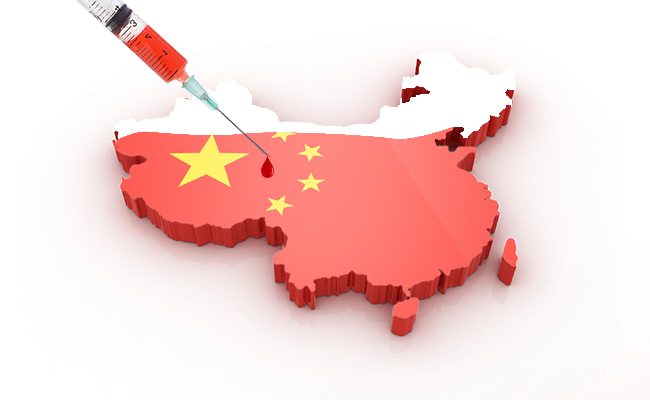
Can the Chinese economy find the magic formula that allows for economic transformation without hurting growth too much?
China’s economic growth has slowed to its lowest level in 24 years, and there’s not much room for further decline as Beijing has reaffirmed its goal of doubling the country’s GDP between 2010 and 2020. This requires the economy to keep growing at the pace of 6.5% every year.
However, the conventional methods of boosting growth, including government-led investment and property development, have shown serious side effects and are no longer deemed dependable. Beijing is now pinning its hopes on unlocking another round of “economic dividends” by carrying out reforms to make the entire system more market-driven and thus more efficient.
But reforms are never easy, especially when significant growth is still expected by the central leadership. So the highly debatable question now is: “Can China find the magic policy formula that allows for economic transformation without dampening growth too much?”
We recently discussed this with Anthony Saich, Director of the Ash Center for Democratic Governance and Innovation and the Daewoo Professor of International Affairs at Harvard Kennedy School, a renowned expert on the Chinese government and its social policies. In this interview, Saich shares his views on China’s efforts to overhaul its state-owned enterprises (SOEs) and other areas of reforms the government is pursuing.
Interview excerpts:
Q. China wants to reform the relationship between the government and the market. But it is also retaining the pillar role of the state in the economy. How do you think the seemingly conflicting objectives will play out in the future?
A. There’s a different perspective when Western observers look at what China talks about in respect to SOE reform for example, and the way the Chinese government sees it. I think if you are a westerner, you inevitably begin to think that reform must mean more privatization, less role for governed markets and so forth. I think if you look at it from the perspective of the Chinese Communist Party and Chinese government, their ideas of SOE reform are somewhat different, and it’s basically to make that sector more efficient so they’ll contribute more money to the state.

So as you know there has been a fight within the different bureaucracies in China about how to allocate profits from the state-owned sector with the Ministry of Finance wanting to allocate more into social security funds, taking more money away.
Where the problems might come of course, is whether you can really streamline the state-owned sector to make it really efficient and to get a better rate of return on investment. And clearly what we are seeing at the moment is that the non-state sector of the economy on the whole has more dynamism, is producing more jobs and is creating a better return on investments. So it is going to be a very difficult balancing act, given the government priority to maintain an efficient, strong sector. It’s not an unusual model, we’ve seen that in elsewhere, in East Asian, in some of the European continental economies in terms of maintaining quite strong state-owned sectors even after the economy becomes quite mature and quite developed.
I suppose that the one area where there’s a question mark on this is that if you look at South Korea, for example, [or] what people call a governed market, ultimately I think it was still intended to protect nascent industry until it was able to compete on the global markets, and I suppose that’s still an open question with respect to China—whether the protection at the moment is facilitating those SOEs to genuinely reform so that they’ll become more competitive within global markets or not. So one can understand the policy but there’s an inherent tension there that may become more evident, more problematic to resolve moving forward.
Q. Will the current reforms that the government is pursuing, in the way it’s approaching them, really release the so-called “reform dividend”?
A. If they carry through the program that was introduced at the Third Plenum entirely, I think the answer is yes. If you look at the structure of the Chinese economy, it’s quite clear the Chinese government and most foreign observers have agreed that the old strategy doesn’t work any longer. You can’t rely on the levels of state investment, and the export-led growth—it will continue but it’s hard to see how that can be increased much further. The profile of exports within the economy looks more like a small island economy rather than a continental economy. So the shift that the government is talking about towards consumerism, I think it’s the right approach.
But if you look at the reform program as a whole, if they really do carry through with the reforms, I think 6% growth over the next 5-10 years is feasible, given the amount of urbanization that is supposedly going to take place. If however, you don’t have a more effective allocation of capital, where you are going to get more effective returns, I think you’ll see diminishing returns on that, and you might see growth falling to 3%-4% range.
What we are now seeing is the political bargaining around [the reform plan] and I don’t think we know what the outcome of that will be. If the vested interests which exist in China block a number of the reform moves, then I think the Chinese government is going to find it hard to keep growth up in around a 6% range.
Q. We’ve heard the argument repeatedly that the Chinese public is actually in favor of a strong central leadership. What’s your view on this and how does this sentiment impact the evolution of the Chinese government?
A. I think what people like is effective government rather than necessarily strong government. You can have strong government which produces disastrous results. I do think there is obviously much more than, let’s say in the US, a sense that government has an important role to play and the central government is a driving force in moving things ahead.
We’ve been doing surveys since 2003 of what people think about government and their satisfaction level with government. And you see very strongly the people who are relatively satisfied or extremely satisfied with central government is high, it’s 90%-95%, and it drops as you go down each level of government until you get to the lowest level of government where satisfaction drops to about 35%-40% range. What that suggests to me is that on the whole people think the government is taking the right steps, it is introducing policies that people support, but somehow there’s a problem with implementation.
And the real challenges lie with local government, which may be ineffective in carrying out central directives on policies. In some cases that’s not their own fault, they just don’t have the financing to carry through this kind of cascading set of demands that come from central government. The question becomes, of course, how long people see that as a local implementation problem, and at what point do they see it as defectiveness at the central government level.
So I think there’s no doubt that China has had traditionally a culture of a strong center with a very fragmented program for implementation at local levels. But again I just want to emphasize, I’m not sure Chinese people like strong government, it’s more that they want effective government.
(Watch the video below)
Q. This problem at the local government level—whether it is implementation or other issues at work—how can that be resolved?
A. I think it’s a number of things. I mean the performance contract system is changing for local government officials, it is now moving away from focus on GDP, levels of investment and so on, to include some other indicators such as environmental protection, the social side of performance. The problem for local government officials is that those indicators often don’t show returns within the 3-5 year period that you’re going to be in place. So I think there’s still a lot of pressure if you are a local government official to concentrate on the GDP side of things, rather than say environmental clean-up, because that’s probably not going to happen while you are still in that area.
I think there’s two other aspects which need to be brought in. The first is the question of stable financial base for local governments. I think that’s going to operate at two levels, first of all the central government will have to take over more of social welfare responsibilities for itself. I don’t think local governments can be expected to pay for the integration of migrant labor into their cities, it’s just too expensive, too many barriers, too many interests that would work against it. I think that’s a cost that has to be taken over by the central government, as are a number of other social welfare programs. And related to that, there’s going to be a rethinking of the division of revenue expenditures between central and local government. And local government itself has to be able to develop a more secure revenue base whether that’s through property taxes or other measures.
The third is that there has to be more transparency in accountability of local government toward its citizens. We have elections at the village level but then it really stops, and so you really need both movement coming from above, but I think ultimately you need some kind of control and more accountability for citizens from below.
Q. China’s international initiatives such as the Asian Infrastructure Investment Bank (AIIB) and the ‘New Silk Road’ have caused some political tensions between China and the US. What would be your advice to both sides to bridge this gap, if it ever needs to be bridged?
A. I think the days are gone when China could say we don’t interfere in the affairs of other countries. It might not be deliberate, but the fact that you are putting these investments into the countries, if you are so engaged in the trade with those countries, it’s going to impact their domestic social affairs and politics. That’s a reality that we’re dealing with whether you like it or not.
I think the dynamic for developing this comes from a number of causes from China, which are not completely well understood in America. I think the first of course is that China has huge excess capacity within the country, and this is a way of exporting some of that capacity through the investment through AIIB into other countries. I think it’s now generally acknowledged that America was mistaken in not trying to join at an early stage AIIB. It would have been difficult of course for President Obama, if he had agreed to join, it’s very unlikely the Congress would’ve allowed the funds to put into AIIB. But most people really think that America is suffered badly in reputational terms because of that.
I think it’s an important step for China now in terms of becoming a global player, and the fact that it’s accepting a multilateral framework to do that. I think in the past China has not been entirely successful with just purely bilateral investments and opportunities, and this really gives it a training ground and security within the region that other players are involved, and I think America need to recognize that. If we just look at what the infrastructure needs are within Asia—they are massive, this is going to be one small part of it. The Asian Development Bank, the World Bank, no one is going to be able to cover the full nature of the cause, so I think it is generally to be welcomed.
I think the opinion has begun to shift in the US on that. The other thing that would help with it is that the US, to some extent, has blocked China’s aspirations in terms of the existing international frameworks. Who knows if America had allowed the reform of IMF to go through, giving China greater engagement, greater role in that partnership, would they have set up AIIB? Maybe, maybe not. I don’t know what the answer to that is, but one thing that is very clear that China’s going to play an increasing role globally, and the US has to accept that it’s not going to be No.1 in all areas anymore. And China has to accept that its outdated notion of sovereignty is also passe, and I think that’s where the discussion has to take place to move things forward.



















